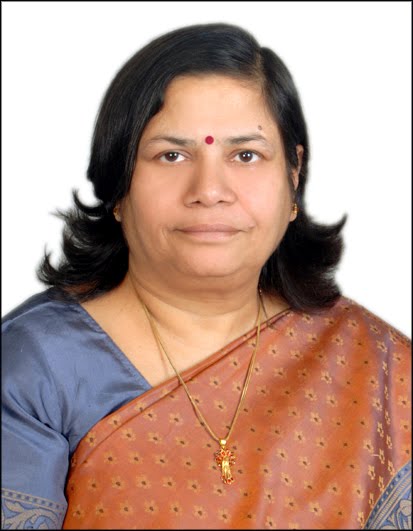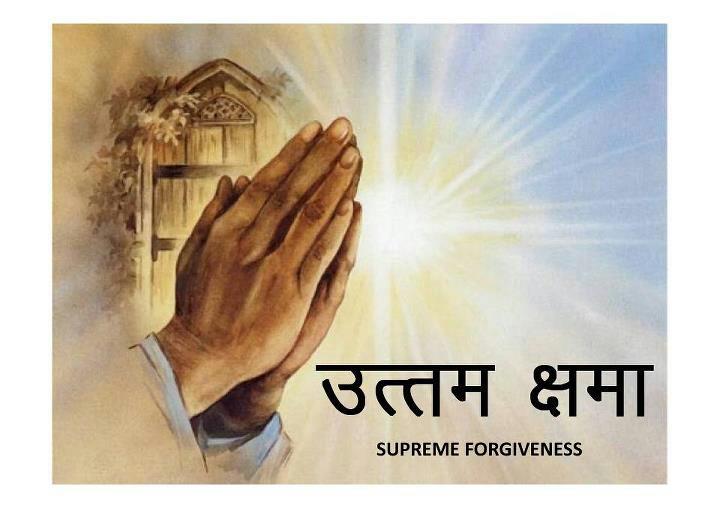On September 2, 2020, the Forgiveness Day was celebrated. It falls on the last day of Paryushana, a ten-day festival observed by the Jains worldwide to introspect their own conduct with others. On the Kshama–vani Diwas (Forgiveness Day, usually falling in the month of August or September on the fifth day of Bhadrapada according to the Hindu calendar) they utter the words Micchhami Dukkkadam to each other which implies: Please forgive my bad deeds done knowingly or unknowingly. This is unique to Jainism. Even the Muslims have Ramazan, a whole month for fasting and self-purification but there is no provision for seeking forgiveness or granting forgiveness for its own sake. It is different from the Christian tradition of saying that ‘to err is human, to forgive divine’. It is based on the principle of self-purification and spiritual evolution. It makes the person let go of any ill-feeling, grudges and bitterness against anyone by moving forward.
Seeking forgiveness or forgiving others is to be seen as an act of great courage. It is usual to feel offended, hurt or traumatized by our near and dear ones or unknown persons in our day-to-day lives. Similarly, we too might hurt, offend or illtreat others consciously or unconsciously. The annual ritual of seeking forgiveness provides a wonderful opportunity of cleansing our souls. Since everybody else is also doing the same, we do not feel hesitant, ashamed or reluctant of seeking it. Rather we feel proud. It inculcates the feelings of understanding, empathy and compassion. It provides an opportunity for dialogue even with those with whom we might have had strained relations in the past for one reason or another. They could be our friends, colleagues, neighbours, family or casual acquaintances on social media. It helps in lessening anxiety, stress and hostility, on the one hand, and promotion of physical, mental and spiritual health, on the other.
Under Jainism, the seeker of forgiveness looks at it as being ‘doubly blessed’. The person who forgives feels lighter in heart and higher in terms of self-esteem and the one who is forgiven also feels a sense of relief and gratitude. S/he can see the things from a wider perspective. S/he knows that every soul is noble inherently. If someone commits a mistake, it is because of ignorance, circumstances or one’s own karmas (deeds in this world or earlier births). If we make it a way of life to forgive people not occasionally but on consistent basis by treating each life as the inherent part of the cosmos, we can live a peaceful life together and the world would become a happier place for co-existence based upon genuine freedom. Forgiveness under Jainism is not seen as an act of cowardice but as an act of great valour. It is said:
Kshama virasay bhushanam
When translated into English, it implies:
Forbearance is the ornament of the brave.
Contribution to mental health
Forgiveness is seen as one of the virtues, such as humility, purity of thought, self-restraint, austerity, contentment, etc. Seeking forgiveness helps in getting rid of all the negative or toxic emotions, such as, anger, pride, greed, deceit, too much ego, etc. Forgiving others also helps in leading harmonious lives at the individual, familial and social levels. On the Forgiveness Day, the Jains traditionally approach their friends, colleagues, neighbours, relatives, enemies or adversaries and even casually known persons with utter humility and seek forgiveness formally in the following words:
KhamemiSavveJiva, SavveJivaKhamantuMi Mitti Me Savvabhuesu, Verammajjhamna Kenai
When translated into English, it implies:
I forgive all the living beings of the universe, and may all the living beings forgive me.
I have friendship with everyone and animosity with none.
Such a gesture is the need of the hour. We are living in a world that is bereft with so much violence, self-centeredness, lack of concern for fellow human-beings, hate, anger, apathy, loneliness, alienation, etc. Nobody can deny that in today’s world, our psychological and physiological well-being is constantly under threat. This threat can come not only from militarism and terrorism, but also from environmental pollution, growing violence, religious fundamentalism, rising consumerism and pandemics like Covid-19. There are problems faced by the society as a whole.
Not only the poor and marginalized sections of society, but the rich and affluent are also afflicted by growing human distress owing to weakening of social fabric, growing violence, maddening competition and lack of true knowledge and guidance. It requires serious efforts towards imbibing those traditional and moral values which go beyond the state and the market and provide a path for the humane and holistic development of all human beings across the world.
The Jain principle of forgiveness aims not only the individual’s physical, mental and spiritual well-being but also the sustainable socio-economic development at the societal level and peaceful co-existence at the global level. Forgiveness under Jainism is unconditional, spontaneous and emphatic and not ‘self-oriented’. Though it is difficult in practice but those who believe in virtuous life and follow the cardinal principles of Jainism – (1) ahimsa (non-violence), (2) anekantvaad (relative pluralism) and (3) aparigreh (non-possessiveness), can very well understand the significance and practical utility of forgiveness. They can easily practice it once they know that everybody has an equal right to live in this inter-connected world governed by our own karmas and not by God or some supernatural power.
Each individual can seek enlightenment and liberation by overcoming one’s karmas by following the path of ratnatraya (Three Jewels). It is based on samayak darshan (sound insight), samayak jhan (sound knowledge) and samayak charitra (sound character). These help in understanding the multifaced aspects of reality, cultivate objectivity and equanimity. This process of self-purification provides an individual the capacity to forgive. It leads to higher spiritual growth and improved inter-personal, inter-group and inter-national relations. It enhances one’s self-control and promotes a non-violent world order.
It reminds us the classical example of forgiveness by Mahatma Gandhi who was assassinated by Nathu Ram Godse on January 30, 1948. He was not given death sentence as Gandhi was opposed to capital punishment. No wonder, Gandhi is seen as an apostle of non-violence. He followed Jainism in thought and deed. His birthday is celebrated as Non-violence Day. Even Jesus Christ is said to have forgiven his crucifiers for not knowing what they were doing.
In view of eternal relevance of the principle of forgiveness, we should fix a day to seek forgiveness at the international level every year. It would help in highlighting the need for psychological, physiological and spiritual well-being of one and all. Taking responsibility for our deeds, even bad ones, makes us powerful. It helps in stopping our grudges, self-justifications and counter-attacks.


